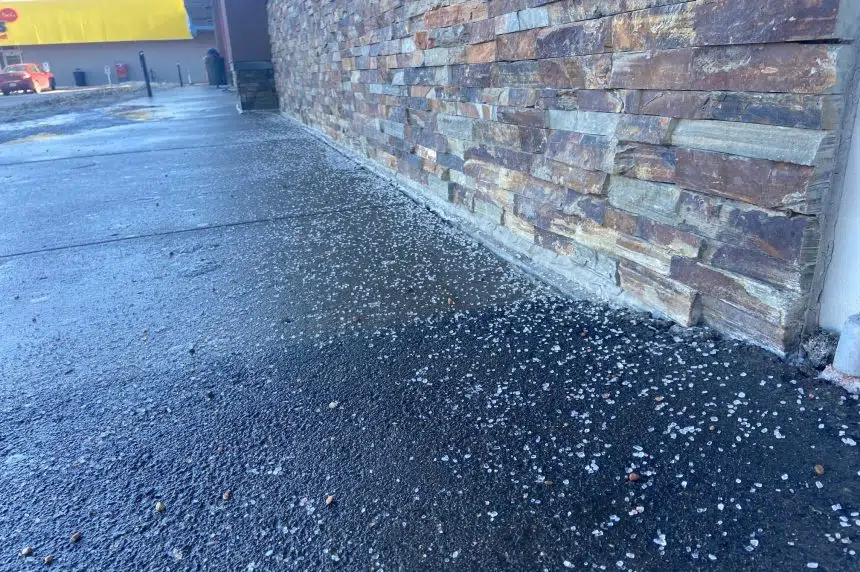Keeping roads and sidewalks as safe as possible with icy conditions remains the top priority on days like Thursday.
Different types of salt chemicals are used on main roads to help drivers and pedestrians get across intersections.
While safety trumps any other problem, these chemicals can create long-term issues when it comes to lawn care and driveways.
Jill Van Duyvendyk, the owner at Dutch Growers, said there’s enough snow to go around this winter where those chemicals won’t be as big of an issue.
“Because we have a lot of snow on the lawn, usually by the time it melts, (the chemical) is diluted enough that it’s not going to harm the lawn,” Van Duyvendyk said.
“It is best if you have the possibility to scoop the salt and spray (it to) an area that’s not lawn, especially if you don’t have a lot of snow already on your lawn area.”
She said if someone isn’t as fortunate to have a decent portion of snow on their lawn, they can still do a few things to maintain proper care.
If not, the salt chemicals can take away the moisture from the soil, leaving for dehydrated ground.
“What you really want to do is treat your lawn in the springtime, so make sure that you’re watering it well (or) maybe a good power raking or a vacuum is really good, just to get some of that extra residue off,” Van Duyvendyk said.
Even though a lawn might be covered in snow, there’s a good chance driveways and sidewalks are cleared when chemicals are applied.
Rob Van Duyvendyk is also with Dutch Growers and he believes those minerals can even end up inside people’s homes and ruin certain floor surfaces.
“The rocks will affect it quite a bit,” he said. “It affects the concrete on your driveway and even when you bring it into your house (it can damage) those laminate floors we have along with everything else.”
However, while both Van Duyvendyks want the best for everyone’s lawn care, they stress that the chemicals do more good than harm in keeping everyone safe throughout the winter months.











